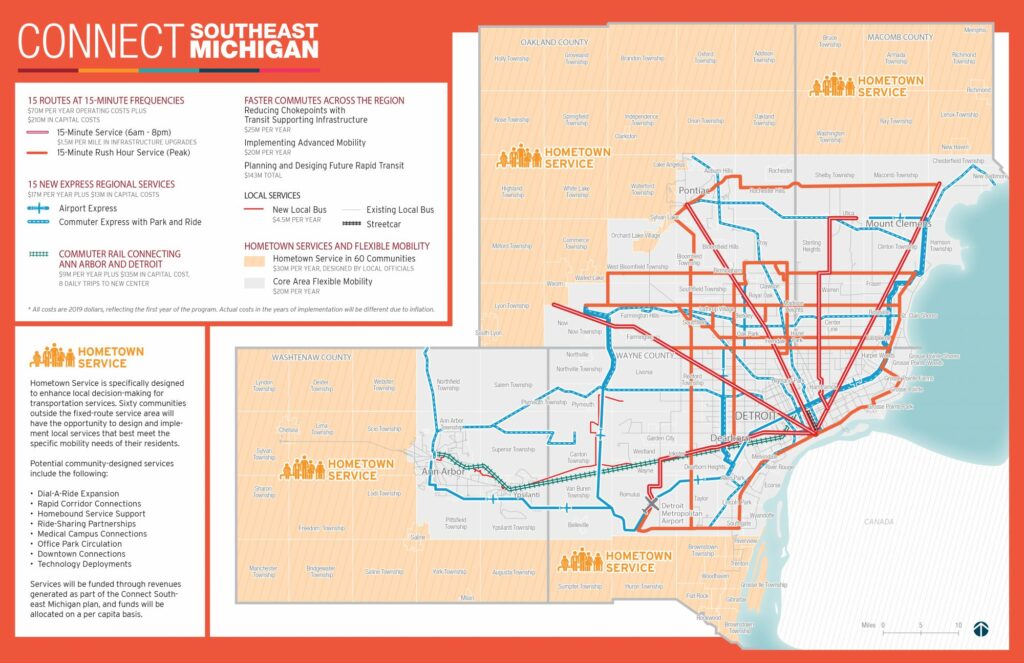- More service in more places
- Local, nontraditional transit service in less urbanized areas
- A seamless customer experience in a system that unifies disparate transit providers
- A larger role for local leaders to influence service in their communities
- Acknowledgment that technology is evolving, and the mobility systems must be flexible enough to evolve
- Connect Southeast Michigan builds on and modifies the 2016 plan with those insights.

Coordinated Mobility Plan
RTA, with funding from MDOT, is beginning a Coordinated Mobility Plan to study a number of specific but overlapping transportation needs, such as senior/disabled transportation, non-emergency medical transportation, workforce transportation, and others.
This plan will serve as a coordinating framework across counties and transit agencies, while supporting development of more detailed local plans.
Mobility Oriented Development
Station-area planning study focused on proposed Woodward Avenue Bus Rapid Transit and Ann Arbor-Detroit Commuter Rail stations. Funded with an FTA Transit-Oriented Development grant.
This study will show how rapid transit stations can be seamlessly connected to adjacent communities and neighborhoods through strategic redevelopment and local infrastructure improvements that are appropriate to the station’s surroundings.
Come back soon for more information.
Seamless Fare Integration
RTA is leading a joint effort across transit agencies to develop a universal regional fare system, with one unified way for customers to pay for a trip on any service.
Phase II Concept of Operations study will be completed by mid-2018.
Find out more about this project.
One-Click/One-Call Service
RTA is working with AAATA, Area Agency on Aging 1-B, and Detroit Area Agency on Aging to establish a single point of contact for seniors and disabled persons seeking transportation.
The Proposed Plan
The proposed plan will enhance mobility in the region, both today and tomorrow, by connecting more people to more jobs and expanded services. It increases hours and frequency of service on existing successful routes and creates new regional routes and services that our existing transit providers don’t have the resources to provide today.
Financial Analysis Technical Memorandum
The proposed Connect Southeast Michigan plan builds on and modifies the 2016 plan. The plan provides $170 million per year in operations funding (in 2019 dollars) – a total investment of $696 million over 20 years in transit supporting infrastructure – and addresses the feedback to provide a more robust, regional solution to transit and mobility for Southeast Michigan.


